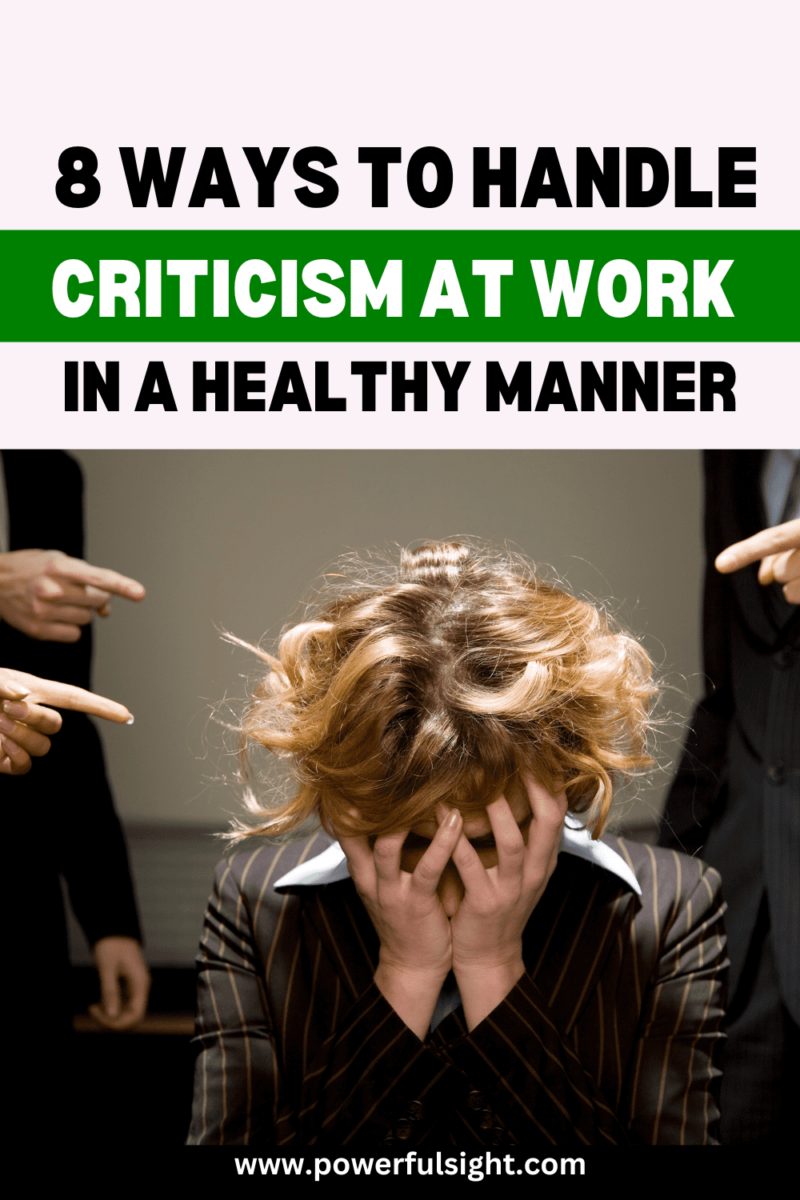No matter how strong or successful you are, criticism is always hard to hear. Whether it’s your boss giving you feedback on a project, or a colleague offering constructive criticism, it’s important to be able to take it in stride and use it to improve your work. Continue reading to find some tips on how to handle criticism at work.
Importance of constructive criticism in the workplace
Criticism can help you to improve your performance and learn from your mistakes. Apart from that, it can help build trust and respect between you and your colleagues, and can also help to create a more positive work environment overall.
So, never see criticism as something bad. Although it hurt and is so embarrassing to be criticized in front of your fellow workers, it is also a way of increasing performance at work.
SAVE PIN FOR LATER

How to handle criticism at work
1. Recognize that criticism is an important part of the workplace
Any work without criticism will never look its best. You make effort to improve what you have done only when it is condemned by others. So, do not have a wrong notion about criticism.
That you are being criticized does not mean everyone hates you. Understand this and you will never feel bad when someone finds fault in what you do.
Related: How to handle burnout at work
2. Learn to distinguish constructive criticism from unhelpful criticism
“Constructive criticism is honest and valid feedback that is offered with the intention of helping the recipient improve their work in some way in order to achieve a positive outcome,” notes Connie Mathers.
The essence of this type of critique is to correct and help you improve your work. So, before you respond to criticisms, find out if it is constructive or unhelpful and jealous criticism.
Related: How to be more confident
3. Respect the critic’s opinion, even if you don’t agree with it
Even if you felt your critic is wrong, try to show them some respect and avoid shouting or starting up a fight with them.
Related: How to handle rejection
4. Try to reflect on the criticism
Take the time to reflect on the criticism, and figure out how you can improve your performance based on what the critic said. It is only a fool that walks away in ignorance and arrogance without accepting corrections.
Related: How to stand up for yourself
5. Avoid responding defensively or angrily to criticism
It’s natural to want to defend yourself when you’re being criticized, but try to resist the urge. Instead, really listen to what the other person is saying and try to understand their perspective.
Related: How to make your life more interesting
6. Ask the critic for feedback on how you can improve your performance
If you’re not sure what the person is trying to say, or you want to get more information, ask clarifying questions. This shows that you’re taking the criticism seriously and that you want to understand.
Related: How to break bad habits
7. Take the time to thank the critic for their feedback
Even if the feedback is hard to hear, try as much as possible to appreciate the person criticizing you. One thing you should know about criticism is that those who condemn your actions when you are wrong are those who love you. So, endeavor to appreciate them when they point out your faults to you.
Related: How to cope with change
8. Make a commitment to using criticism to improve your performance
Now you have heard what they have to say, consider using those corrections to improve your performance. Take action based on the feedback you’ve received, and continue to grow as a performer.
SAVE PIN FOR LATER

- 9 Things Daughters Of Narcissistic Mothers Don’t Do - 02/03/2026
- Daughters of Narcissistic Mothers Healing Affirmations - 27/02/2026
- 5 Perfect Mother’s Day Gift Ideas (That She’ll Truly Love) - 27/02/2026
